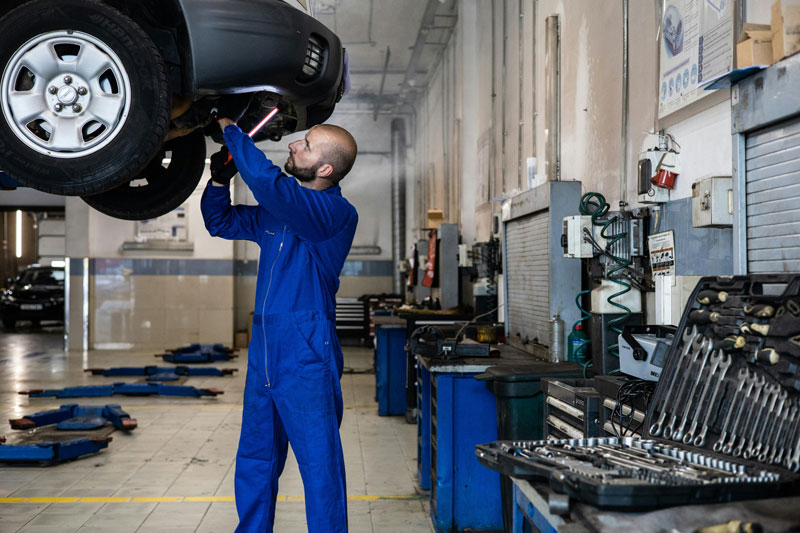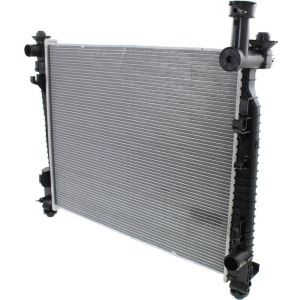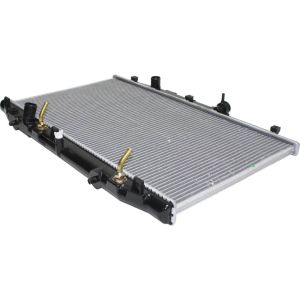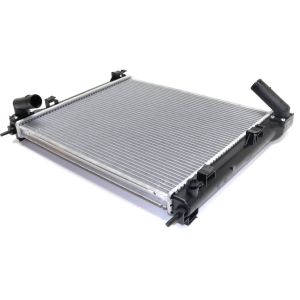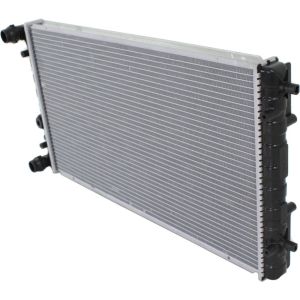Did you know that nearly 15% of car repairs are related to engine noise? You've probably noticed your car sounding louder than usual and wondered why. It could be an indication of several issues ranging from the minor, like a loose belt, to something more severe, like engine damage.
Before you start panicking, let's investigate the possible causes and solutions. Keep in mind, understanding the root cause could save you from costly repairs down the line. Curious to learn more? Let's get started.
Key Takeaways:
- Loud engine noises can be caused by bad bearings, failing muffler, low oil level, worn torque converter, or incorrect fuel-to-air ratio.
- Consequences of a loud engine include reduced fuel efficiency, increased emissions, possible engine damage, and potential safety hazards.
- Diagnosing a loud engine involves checking oil levels, inspecting the exhaust system, listening for specific engine sounds, and using diagnostic tools.
- Regular maintenance, proper lubrication, prompt repairs, and adjusting fuel-to-air ratio can help prevent and fix loud engine noises.
Loud Engine Noises - Common Issues
You're probably wondering why your car engine is making all that noise. Common issues can range from damaged or worn bearings to a failing muffler, or even a worn torque converter. Inaccurate mass airflow sensors and worn-out gaskets can also contribute to that unnerving sound.
Damaged or Worn Bearings
When your car's engine starts making loud, knocking sounds, it's often due to damaged or worn bearings. These bearings play an important role in your engine's smooth operation, reducing friction between moving parts. But when they get worn out or damaged, they can't do their job effectively, causing those disturbing noises.
As part of your routine engine maintenance, you should:
- Regularly check your car's bearings for signs of wear and tear.
- Replace worn or damaged bearings promptly.
- Always use high-quality bearings to guarantee longevity.
- Guarantee proper lubrication to reduce bearing friction.
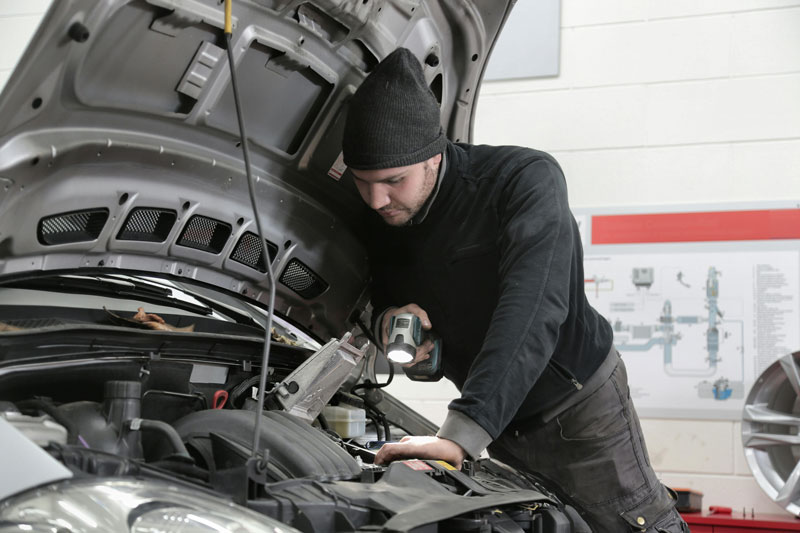
Damaged or Failing Muffler
A damaged or failing muffler is another common cause of loud engine noises, substantially increasing the roar you hear from your car. The muffler is a key component of your car's exhaust system, designed specifically for noise reduction. When it's damaged or failing, it can't perform its job effectively, leading to an increase in noise.
What causes a muffler to fail? It could be due to rust, wear and tear, or impact damage. This damage allows exhaust gasses to escape before they can be properly silenced, resulting in a louder engine sound.
If you've noticed your car sounds louder and the noise seems to be coming from the rear, it's worth checking your muffler. A professional inspection can confirm any damage and recommend necessary repairs or replacement.
Worn Torque Converter
Thirdly, if your car's engine is making loud noises, it could be due to a worn torque converter. This device transfers power from the engine to the transmission, and when it's worn, it can create a variety of loud and concerning noises.
To help you understand, consider these four points:
- Torque converters can wear out over time, causing them to become inefficient and noisy.
- A worn converter often creates a grinding noise when in gear.
- This grinding can be mistaken for other issues, so it's important to have a professional diagnose the problem.
- Replacing the torque converter is typically the best solution for this issue.
Inaccurate Mass Airflow Sensor
Another common culprit of loud engine noises is an inaccurate mass airflow sensor, which can disrupt the engine's fuel-to-air ratio and cause excessive noise.
This sensor measures the amount of air entering your engine, and if it's faulty, your car's computer can't accurately calculate the right amount of fuel for combustion. This imbalance often results in performance issues, including a noisy, rough-running engine.
Faulty sensors can mislead your car's system, creating an improper mix of air and fuel. This not only leads to noisy operations but also poor fuel efficiency and potential engine damage.
If you're experiencing loud engine noises, it's worth having your mass airflow sensor checked. Remember, addressing such issues promptly helps prevent long-term damage and maintains your car's performance.
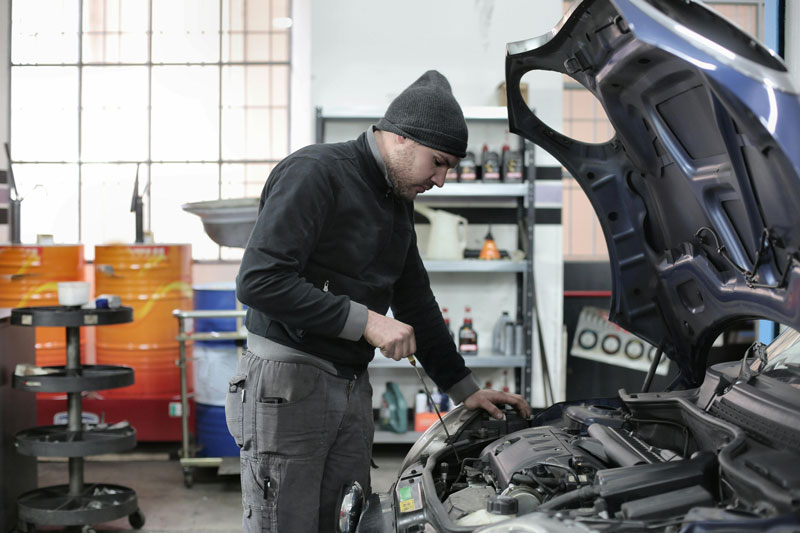
Worn-Out Gaskets
While a faulty mass airflow sensor can certainly disrupt your engine's quiet operation, don't overlook the impact of worn-out gaskets as well. These essential components seal the junction between different sections of your engine, and if they're worn or damaged, you'll likely hear a loud, annoying sound.
Here are 4 things you need to know:
- Gasket maintenance is critical. Regular inspections can help spot wear and tear early.
- Ignoring a worn-out gasket can lead to significant engine damage.
- When a gasket fails, gasket replacement is usually the only solution.
- Replacing a gasket isn't always easy. It's often best to let a professional handle it.
Damaged Engine Mounts
If your car engine's making a racket, it's worth checking your engine mounts, as damage here is a common culprit for loud noises. These mounts, integral in securing your engine to your car's chassis, can wear out or break, causing excessive engine vibration and noise.
Engine mounting solutions range from simple repairs to full replacements. When damaged, your mounts fail to provide effective vibration isolation techniques, leading to that disruptive racket. High-quality replacement mounts can restore quiet operation by absorbing those vibrations that generate noise.
Are There Any Risks When Driving With a Loud Engine?
So, what dangers might you face when driving with a loud engine? There are indeed potential dangers associated with this issue. Not only does a loud engine contribute to noise pollution, it could also be a sign of underlying mechanical problems that can compromise your safety on the road.
Here are some examples:
- Distraction: A loud engine can be distracting. You might find it difficult to concentrate on the road or hear important sounds like horns, sirens, or even the thud of a flat tire.
- Underlying Issues: A noisy engine often signals deeper mechanical problems. For instance, it could indicate a failing exhaust system or a worn-out transmission component. Ignoring these warnings could lead to sudden breakdowns.
- Increased Emissions: Loud noises can be a sign of increased emissions, which can harm the environment and potentially violate emission laws.
- Decreased Vehicle Value: A loud engine can decrease your vehicle's resale value. Potential buyers may be deterred by the noise, assuming it signifies serious mechanical issues.
Therefore, it's crucial not to ignore a loud engine. While it's a nuisance due to noise pollution, the potential dangers it poses to your safety and vehicle's health are far more significant.
How to Fix Your Engine?
Having understood the potential risks of driving with a loud engine, let's now focus on how you can fix your engine to mitigate these issues. Engine maintenance is critical to noise reduction, and you can start by checking the oil levels in your car.
If the oil levels are low or the oil is dirty, it's time for an oil change. Proper lubrication is key to a smooth-running, quieter engine.
If your engine is still loud after an oil change, inspect the exhaust system. A damaged exhaust or worn-out muffler can significantly increase engine noise. Don't hesitate to replace these parts if necessary.
Additionally, listen for any unusual sounds. A grinding noise might indicate a worn torque converter, while a knocking sound may point to bad bearings. It's also crucial to address engine misfires promptly. Ignoring them could lead to louder noises and more serious engine damage over time.
Lastly, ensure the correct fuel-to-air ratio in your engine. If you're unsure, consult your vehicle's manual or seek professional help.
Conclusion
So, don't let your car turn into a growling beast on the road. Understanding the causes of loud engine noises and addressing them promptly will keep your vehicle purring smoothly.
Remember, preventive maintenance is your best weapon against unwanted noise. It's like giving your car a regular health check-up. Stay ahead of the game, keep your ride quiet and enjoy the peaceful drive you deserve.
FAQs (Frequently Asked Questions)
What Are the Common Signs of a Bad Bearing That May Cause My Car Engine to Sound Loud?
- Common signs of a bad bearing include grinding or squealing noises, irregular tire wear, and your car pulling to one side. Overheating might occur and bearing replacement costs can escalate if not addressed promptly.
How Does a Worn-Out Torque Converter Contribute to My Car Engine's Loud Noise?
- Your worn-out torque converter can make your engine loud. It doesn't perform its torque functionality correctly, leading to grinding noises. If left unrepaired, you'll eventually need a costly converter replacement to silence your engine.
What Are the Potential Safety Hazards of Driving With a Loud Engine?
- A loud engine can present safety hazards like engine overheating and brake failure. You might not hear warning sounds, and excessive vibrations could even damage brake systems. It's important to address loud engines promptly.
